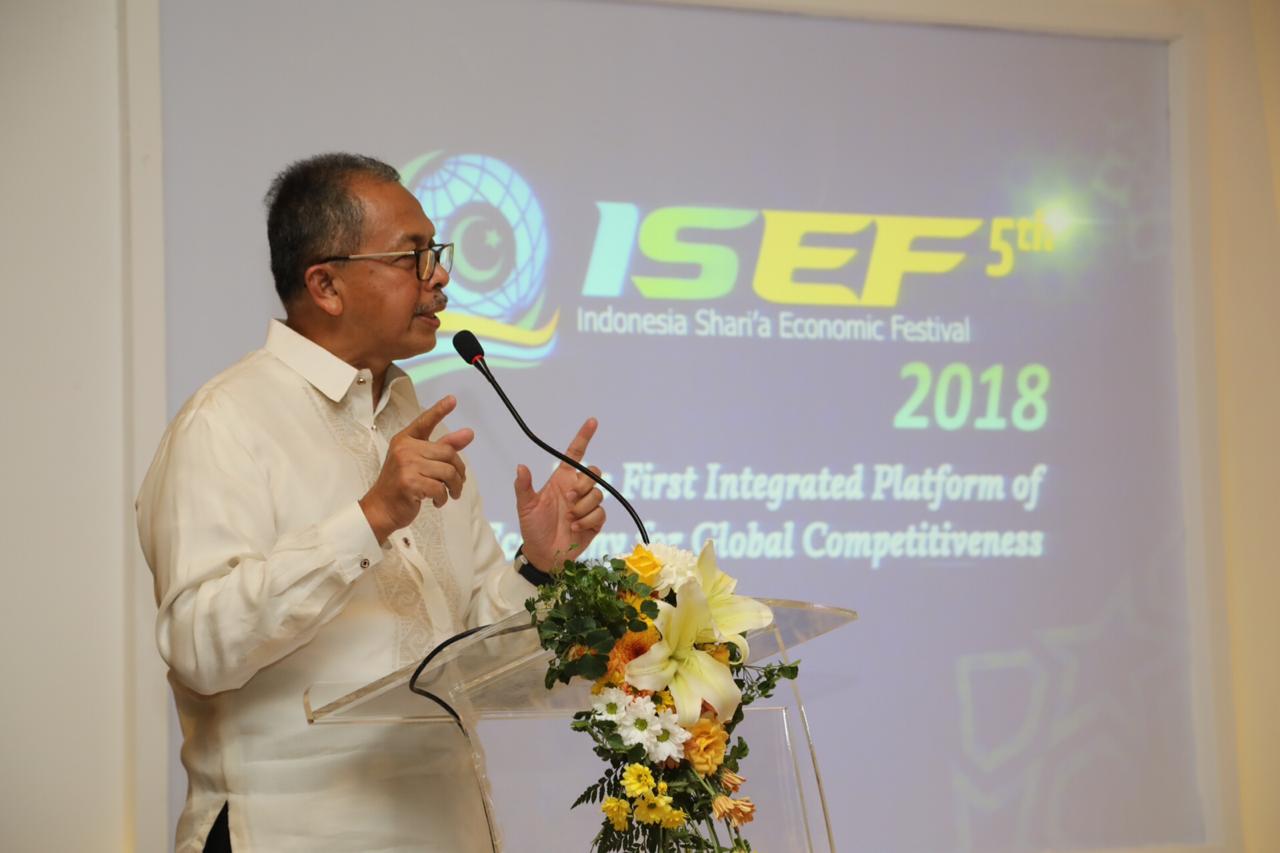
Bank Indonesia regularly strengthens Islamic financial inclusion by expanding access to financial services through the optimisation of remittance business models and services. Remittance services offered in collaboration with pesantren businesses (Islamic boarding schools) have vast potential for growth and development, for instance Balai-usaha Mandiri Terpadu or Baitul Maal wa Tamwil (BMT), as a point to receive remittances. That was the key message of Deputy Governor Sugeng during a discussion forum entitled “Increasing Access to Financial Services by Optimising Remittance Services” held today (14/12) at the Indonesia Shari’a Economic Festival (ISEF) in Surabaya.
Migrant workers in Indonesia are endowed with enormous potential. Behind that potential, however, remain challenges, such as the practice of entrusting remittances to a third party (Hawala) or withdrawing remittances as cash. Seeking to address the challenges, remittance business models and services must be optimised in order to increase access to formal financial services. Bank Indonesia’s efforts in this area are in alignment with the Productive Migrant Village (Desmigratif) program currently implemented under the auspices of the Ministry of Manpower as well as the Ministry of Villages, Disadvantaged Regions and Transmigration.
Collaboration and integration between Desmigratif Cooperatives and straightforward, fast and affordable remittance services are expected to elevate the welfare and prosperity of Indonesian migrant workers and their families. The discussion forums focusing on remittance business models and services represent a means to educate and introduce straightforward, fast and affordable remittance business models to the broader community as end-users of the services. Bank Indonesia is also urging remittance services providers to refer to international best practices, including those published by the Committee on Payment Market Infrastructure (CPMI) as well as the Anti-Money Laundering and Counter-Terrorism Financing (AML/CTF) principles issued by the Task Force on Money Laundering and Terrorism Financing (FATF).
Congruent with bolstering Islamic financial inclusion, strengthening Islamic social finance would also catalyse national economic growth and support accomplishment of the Sustainable Development Goals (SDGs). Achieving socioeconomic equality and prosperity is the overarching worldview of Islamic economics and finance. This is consistent with the Sustainable Development Goals (SDGs) formulated by the United Nations, which provide a clear world direction towards the global goals of attaining prosperity for all.
Striving towards socioeconomic equality and prosperity, Islamic economics and finance employ social instruments that create vast potential, namely zakat, infaq, sedekah and waqf (ZISWAF). Such instruments play a critical role in strengthening Islamic social finance. The potential of zakat funds in Indonesia exceeds Rp200 trillion, with realisation currently standing at approximately Rp6 trillion per year. The large potential of Islamic social finance in Indonesia could be exploited to overcome socioeconomic constraints to prosperity. That topic was raised during the Indonesia Shari’a Economic Festival (ISEF) at a forum entitled “The Role of Islamic Social Finance to Support Implementation of the Sustainable Development Goals (SDGs)”. Participants discussed models to empower communities through ZISWAF funds, efforts to enhance public understanding of ZISWAF funds in order to finance productive sectors and ZISWAF implementation strategies for productive sectors.
Bank Indonesia continues to advocate the critical role Islamic social finance could play in terms of empowerment. Cooperating with the Indonesia Waqf Board (BWI) and Ministry of Finance (Waqf), Bank Indonesia launched Waqf-Linked Sukuk to maximise the benefits of waqf funds. Furthermore, Bank Indonesia previously released the Zakat Core Principles and Waqf Core Principles in conjunction with other relevant authorities in order to provide guidelines for zakat and waqf management pursuant to international standards.
Moving forward, Bank Indonesia will continue to promote Islamic social finance as a potential locomotive of sustainable development.

